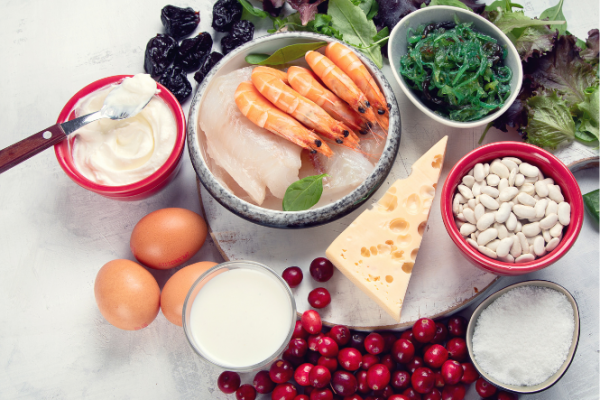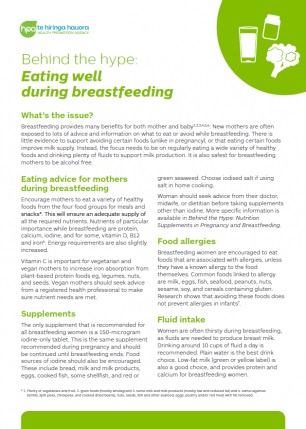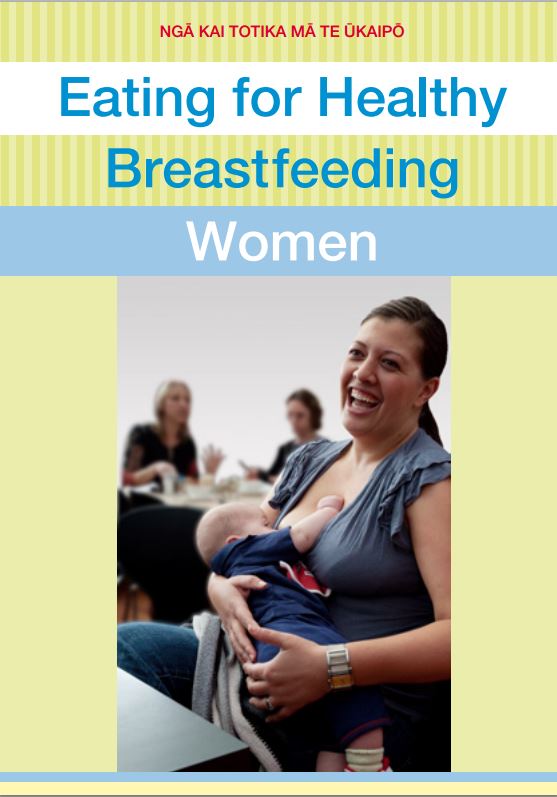Although only required in very small amounts, iodine is an essential nutrient for everyone. Iodine helps make thyroid hormone which is vital to maintain your body’s metabolic rate, as well as for your normal growth and development. Iodine deficiency can lead to thyroid disease such as goitre (enlargement of the thyroid gland) or hypothyroidism and impair brain development.
We're aware of a problem when trying to use Zero Data to link to Healthify. Zero Data is managed by Health NZ and we are working with them to get this fixed.
Iodine
Key points about iodine
- Iodine helps make thyroid hormone which is vital to regulate metabolism and for normal foetal and childhood growth and development.
- Iodine deficiency can lead to thyroid disease such as goitre (enlargement of the thyroid gland) or hypothyroidism and impair brain development.

Iodine is especially important during pregnancy because there is an increase in maternal thyroid hormone production. Maternal iodine is also use for foetal thyroid hormone production during the second half of pregnancy.
It is particularly important that unborn babies and young children have adequate intakes of iodine to support their brain development. Severe iodine deficiency in pregnancy has been associated with miscarriages, stillbirth, preterm delivery, and congenital abnormalities in babies.
Children of mothers with severe iodine deficiency during pregnancy can have intellectual disabilities and problems with growth, hearing, and speech.
In the most severe form, an underactive thyroid may result in cretinism (a syndrome characterized by permanent brain damage, deaf mutism, spasticity, and short stature), although this has become rare worldwide.
- It is recommended that pregnant and breastfeeding women take a 150 micrograms (mcg) iodine only tablet daily, as well as eating foods which are important sources of iodine.
- The recommended registered tablet can be purchased at pharmacies (or at a lower cost, when prescribed by your doctor or midwife).
- Talk to your doctor, midwife, dietitian, nurse or pharmacist to find out more.
- Seaweed (such as kelp, nori, kombu, and wakame) is one of the best food sources of iodine.
- Other good sources include fish and other seafood, eggs, milk, milk products, soy milk, soy sauce.
- Commercially prepared bread – iodised salt is added to commercially prepared bread in New Zealand (except organic or unleavened varieties).
- If using salt, always choose iodised salt. Fancy, and often expensive, sea salt and rock salts don't contain iodine.

Image credit: Canva
Some of these foods may not be suitable for you if you are pregnant because of the risk of listeria. Read more about listeria and pregnancy.
If you are pregnant or breastfeeding: even though small amounts of iodine can be found in many foods, it's important to take an iodine supplement. This is to ensure you are getting enough iodine.
Diets that exclude foods that are good sources of iodine in your diet can have a negative impact on your iodine status. For example, vegan diets and vegetarian diets with no fish or seafood products and few dairy products. Also, if you consume very little bread or restrict your sodium (salt) intake, you may be at risk of iodine deficiency given that iodised salt is a major source of iodine in Aotearoa New Zealand.
While consumption of iodine containing supplements and kelp tablets will increase your iodine intake, care needs to be taken when considering this type of supplementation, as this may lead to an intake of iodine beyond the safe upper level of intake.
Kelp tablets and other iodine supplements should only be taken under supervision of a doctor or dietician, because the iodine content of these supplements is extremely variable. Taking high doses of iodine for a long period of time could affect your thyroid gland.
Limiting salt intake is an important factor to help manage high blood pressure and other health conditions. However, when using salt, opt for iodised salt.
Iodine(external link) Health New Zealand | Te Whatu Ora
Iodine(external link) NZ Nutrition Foundation
Resources
Eating well during pregnancy(external link) Health Promotion Agency, NZ, 2021
Eating for healthy breastfeeding women(external link) Health New Zealand | Te Whatu Ora, 2021
Safe and healthy eating in pregnancy(external link) HealthEd, NZ, 2022
Salt factsheet(external link) Health Promotion Agency, NZ, 2019
Folic acid and spina bifida/iodine and iodine deficiency(external link) HealthEd, NZ, 2021
References
- Food and nutrition guidelines(external link) Health New Zealand | Te Whatu Ora
- Iodine(external link) Health New Zealand | Te Whatu Ora
- Folic Acid and Spina Bifida/Iodine and Iodine Deficiency(external link) HealthEd, NZ, 2021
- Iodine(external link) National Institutes of Health (NIH)
Brochures

Health Promotion Agency, NZ, 2021

HealthEd, NZ, 2022

Health Promotion Agency, NZ, 2019
Credits: Healthify Editorial Team. Healthify is brought to you by Health Navigator Charitable Trust.
Reviewed by: Sylvia North, Fearless Nutrition – Integrative Dietitian and Nutritionist
Last reviewed:
Page last updated:





